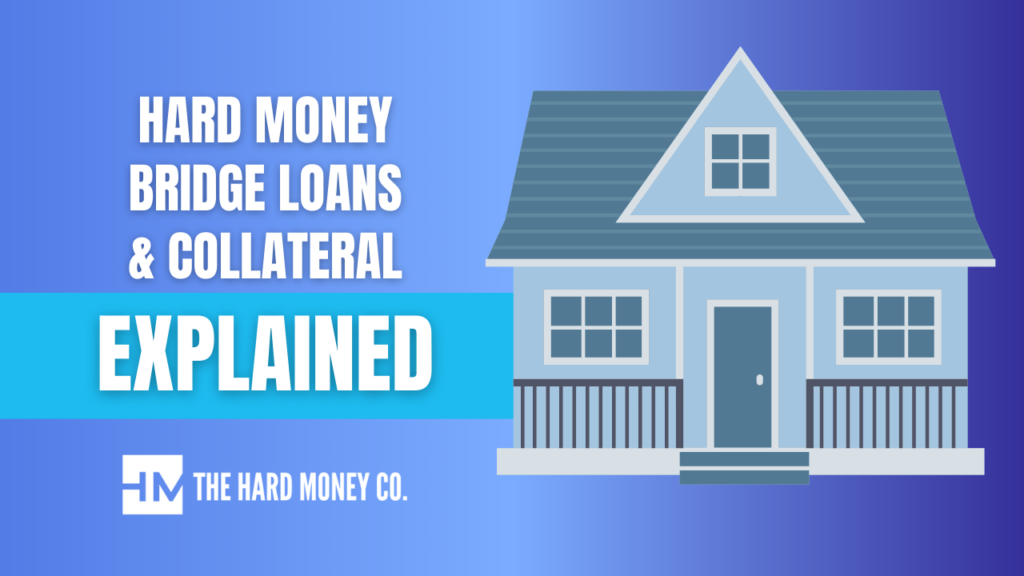Why “Hard” Money?
The term “hard” in hard money refers to the tangible asset (typically real estate) that secures the loan. It’s not that the money is hard to get or difficult to repay – it’s just backed by something physical and concrete, hence “hard.” Compare that to “soft” money loans, which are typically unsecured and depend on the borrower’s ability to repay based on income and credit score.
The Role of Hard Money Lenders in Real Estate
Now, you might be wondering why anyone would choose a hard money lender over a bank, especially considering that hard money loans often come with higher interest rates and fees. Well, in the fast-moving world of real estate, time is everything. A bank loan can take weeks or even months to process, which could cause you to miss out on a lucrative deal.
Hard money lenders, on the other hand, can approve and fund a loan in just a few days, sometimes even in 24 hours. This makes them an attractive option for real estate investors who need quick access to capital to purchase a property, flip a house, or cover renovation costs. Here’s where hard money lenders shine – they’re the go-to for investors who need fast cash to secure time-sensitive deals.
How Hard Money Lenders Work
Understanding how hard money lenders operate is key to deciding whether they’re a good fit for your real estate investing strategy. Let’s break down their process.
1. Evaluating the Property
The first thing a hard money lender will do is evaluate the property you’re putting up as collateral. They’re primarily interested in the current value of the property and, more importantly, its potential value after renovations. This is known as the after-repair value (ARV). If the lender believes the property has enough potential to cover the loan amount and generate a profit for you, they’ll move forward with the loan.
2. Quick Approval
Unlike banks, which require a mountain of paperwork and scrutinize your financial history, hard money lenders are focused on speed. Once they’ve evaluated the property and see that it’s a solid investment, they can approve your loan in just a few days. This is one of the biggest advantages of working with hard money lenders – they don’t care about your credit score as much as your ability to execute the deal.
3. Short Loan Terms
Hard money loans typically come with shorter loan terms than traditional loans, usually ranging from 6 months to 3 years. These loans are designed to be a temporary solution, allowing you to either flip the property or refinance into a more traditional loan once the property has increased in value.
4. Higher Interest Rates
One of the trade-offs for speed and flexibility is higher interest rates. Hard money loans usually carry interest rates of 8% to 15%, which is much higher than conventional mortgage rates. But for many real estate investors, the higher cost is worth it to get quick funding and secure a property before someone else does.
5. Points and Fees
Hard money lenders also charge origination fees – usually expressed in points. Each point is equal to 1% of the loan amount. So, if you’re borrowing $200,000 and the lender charges 3 points, you’re paying $6,000 in upfront fees. These fees are standard for hard money loans, and while they can add up, they’re part of the price you pay for fast funding.
Types of Hard Money Lenders
Not all hard money lenders are the same. They come in a few different forms, each catering to different types of investors and deals. Let’s take a look at the different categories.
1. Private Individual Lenders
These are individual investors who have money they’re willing to lend, often at a higher rate, in exchange for the potential returns on real estate deals. Private lenders are sometimes more flexible in terms of loan structure and negotiation because they don’t have strict institutional guidelines to follow.
2. Private Lending Companies
Private lending companies are businesses that specialize in offering hard money loans. These companies are typically more established and might have more resources than individual lenders. However, they often operate more like traditional institutions with set rules, processes, and requirements.
3. Peer-to-Peer (P2P) Lenders
In the age of technology, peer-to-peer lending platforms have emerged as a popular option for hard money loans. These platforms connect borrowers directly with individual investors. While P2P platforms offer convenience and a wide pool of potential lenders, they may also charge additional platform fees.
4. Institutional Hard Money Lenders
Some larger financial institutions and investment firms specialize in hard money loans. They tend to offer higher loan amounts but may also have stricter requirements and less flexibility in terms of negotiation.
Why Do Real Estate Investors Use Hard Money Lenders?
Now that you have a solid understanding of what hard money lenders are and how they operate, you might be wondering why real estate investors choose them over traditional bank loans. Here are some of the key reasons:
1. Speed and Convenience
Real estate deals move fast. When a great property hits the market, you need funding quickly to avoid losing out to another buyer. Hard money lenders are known for their speedy approvals, allowing you to secure financing within days instead of weeks.
2. Fewer Personal Requirements
Hard money lenders focus on the property, not on you. If you have a less-than-perfect credit score or a complicated financial history, banks might turn you down. Hard money lenders, however, are more concerned with the value of the property and its potential profit margin.
3. Funding for Unconventional Deals
Traditional lenders often shy away from properties that need significant repairs or don’t meet conventional standards. Hard money lenders, however, thrive in this space. They’re more willing to finance fixer-uppers and distressed properties that can turn a profit after renovations.
4. Bridge Financing
Many real estate investors use hard money loans as bridge loans, which provide temporary financing until they can secure long-term funding or sell the property. This is particularly useful when you need cash quickly to close on a deal but plan to refinance later.
The Risks of Working with Hard Money Lenders
Of course, working with hard money lenders isn’t without its risks. Here are a few potential downsides to consider:
1. Higher Costs
The most obvious drawback is the cost. With higher interest rates and points, hard money loans are more expensive than traditional loans. If you’re not careful, these costs can eat into your profits.
2. Shorter Loan Terms
Hard money loans are short-term by nature. If your project takes longer than expected or the property doesn’t sell as quickly as you’d hoped, you could be in trouble when it comes time to repay the loan. You’ll either need to refinance or find another source of financing.
3. Property Seizure
Since the loan is secured by the property, hard money lenders can and will seize the property if you default on the loan. This is a risk inherent in any collateral-based loan, but it’s especially high with hard money loans due to their shorter terms and higher interest rates.
Wrapping It Up
Hard money lenders play a vital role in the real estate investing world, offering fast, flexible financing when traditional lenders simply can’t keep up. They focus on the value of the property, not your credit score, and can approve loans quickly – making them the go-to option for real estate investors who need to move fast on a deal.
But hard money loans come with a cost – higher interest rates, points, and fees. For investors with a solid plan and a profitable property in mind, the benefits of quick access to capital can outweigh these costs. However, for those unprepared for the high stakes, working with a hard money lender can become risky.
So, before you jump into a hard money loan, make sure you understand the risks, do your homework on the property, and have a solid exit strategy in place. The fast-paced world of real estate is thrilling, but it’s also not for the faint of heart – especially when it comes to hard money lending.







